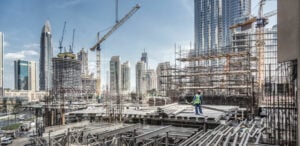
Investing in a Real Estate project marks a pivotal and enduring financial milestone in anyone’s life. The location and attributes of a house hold tremendous sway over our daily experiences. Before embarking on this significant journey with your hard-earned savings, it’s paramount to explore key factors crucial to selecting the perfect property project. This involves engaging with a reputable developer renowned for punctual project delivery, meticulously scrutinizing project details, and delving into unit specifications and statistics, such as load ratios and specific features.
Choosing to invest in Real Estate Project presents a formidable challenge, demanding a considerable level of expertise. The realm of property acquisition stands as an intensely competitive arena, with a surplus of available properties vying for attention. Even for seasoned investors engaged in multiple transactions, the first foray into a new property purchase can prove to be an arduous task.
Each transaction brings its distinct conditions and requisites, set within diverse and competitive market landscapes. Professional real estate researchers adeptly navigate these markets, catering to your specific real estate needs and equipping you with precise market statistics to empower your decision-making, ensuring judicious and informed choices.
In this blog, we’ll delve into the essential considerations for making Real Estate Project as life-changing investment.
Critical Real Estate Project Considerations for Property Buyers
When investing in a Real Estate Project, it’s essential to delve into the intricacies of the Real Estate Project details to safeguard your investment and ensure a smooth, risk-free transaction. Here are crucial aspects that demand your attention:
1. Government Licenses for Real Estate Project Initiation
Before engaging with a developer, it’s vital to ensure that all government licenses required for marketing, selling, and construction initiation are in place. Some developers initiate marketing and sales before obtaining official approvals, leading to potential risks for buyers. Seeking legal counsel and verifying the licenses are obtained are imperative steps. This includes confirming with relevant government bodies like the Urban Communities Authority to ensure the project’s legitimacy.
2. Escrow Accounts for Buyer Protection
Consider dealing with companies that use escrow accounts, linking payment disbursement to construction progress. This system, though not widespread in the Egyptian market, offers enhanced security. It ensures that buyer investments are protected, constrains developers from reallocating funds to other projects, and serves as a safeguard if the project faces hurdles.
3. Finished Apartment Deliveries
Opting for fully finished apartments, though slightly costlier, ensures immediate usability and ease in terms of renting or resale. Projects with unfinished units might delay occupancy for several years, making it challenging for immediate habitation. Moreover, banks and financial institutions typically favor financing completed units. Choosing fully finished units, especially for apartments and chalets, ensures a more secure investment and immediate livability. Check amazing finished apartments from here
4. Delivery Records and Completion Rates
Timely project delivery plays a pivotal role in your investment’s success. Delays not only impact your usage or rental plans for the property but also affect the capital you’ve invested, which could have been utilized elsewhere. Moreover, construction delays might jeopardize the project’s completion due to inflation risks and currency fluctuations. Verifying a company’s reliability in delivery involves checking news sources for project announcements and estimated delivery dates, then personally visiting the project site to confirm progress. Opting for Real Estate Project with a construction progress exceeding 30% is advisable. Seeking legal counsel to safeguard your rights in case of delays is a proactive step, ensuring fair compensation aligned with any potential losses.
Understanding these crucial markers aids in making an informed decision when selecting a developer for your Real Estate Project investment, ensuring a more secure and successful venture.
Choosing the Right Property Developer
The selection of a property developer holds immense significance in any real estate investment endeavor. To navigate this decision wisely, it’s crucial to consider specific key factors that can significantly influence the outcome of your investment.
5. Trust in Developer Continuity
Your trust in a developer’s ability to persist despite economic fluctuations or changes in ownership is fundamental. This ensures the project’s completion, after-sales support, and ongoing maintenance. Opting for companies with robust governance, not reliant on specific individuals or groups, is highly recommended, such as Mountain View. Companies listed on the Egyptian Stock Exchange exhibit this characteristic, as they meet stringent governance standards, offering a higher level of government and financial oversight. Additionally, those owned by government entities or reputable business families with diversified investments are favorable choices due to their unwavering reputation.
6. Prioritize Experience and Real Projects
New entrants in the real estate development market might lack experience in delivering comprehensive projects that meet the standards they advertise. Flashy designs, celebrity endorsements, or marketing tactics can’t overshadow the importance of inquiring about a company’s actual projects. Scrutinize their past work, visit previous projects, and personally evaluate the quality of construction, timeliness, and services offered. Rely not only on the company’s claims but seek opinions from residents of their previous projects.
7. Reputation Over Fame
A company’s reputation in the market holds more weight than its fame or advertisement volume. To truly gauge this, visit existing projects and speak with current residents. Their insights will provide a realistic picture of the developer’s performance. Don’t solely rely on the company’s self-praise or the words of real estate brokers; seek opinions from multiple sources. Utilize news sites and social media platforms to gauge the company’s standing and ensure there are no alarming complaints or legal issues.
The choice of a property developer goes beyond their outward image. Evaluating their continuity, experience, and reputation through multiple channels will empower you to make a well-informed decision, setting the stage for a successful investment journey.
Essential Figures in any Real Estate Project Investments
Numbers and calculations often hide critical details that significantly impact your real estate investment. Here are essential numerical aspects to consider when evaluating different developers:
8. Loading Percentage and Net Area
The loading percentage, representing the difference between the advertised area and the actual net area of the unit, is frequently overlooked by buyers. While an ideal loading rate ranges from 15% to 25%, some companies exploit the absence of regulations, allowing loading rates to spike to 35% or even 45%. Buyers should insist on knowing the actual net area, requesting the engineering plan to understand the space accurately. Comparing unit prices based on net area ensures a fair assessment between different projects.
9. Current Value Calculation for Price Comparison
Price comparisons become complex when installment plans, down payments, and differing payment schedules come into play. To accurately compare prices amid varying payment structures, buyers must calculate the current value using the Net Present Value equation. This computation considers inflation rates, interest, and payment timings, providing a clearer perspective on the actual unit cost.
10. Impact of Real Estate Broker Commissions
The commissions paid to real estate brokers by developers have seen a surge, influencing the dynamics of property marketing. With some companies offering commissions as high as 10% or 11%, there’s a risk of bias towards developers paying higher commissions, potentially overshadowing the quality and pricing of the projects. Buyers should recognize this impact on marketing companies and their inclination towards developers with larger commission rates.
Understanding these numerical intricacies is key to making informed decisions and ensuring your investment aligns with your expectations and financial considerations.




